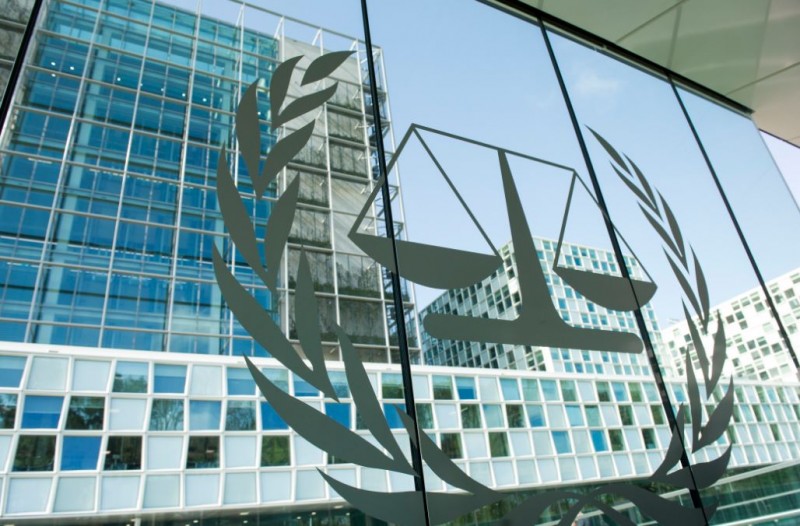
The International Criminal Court (ICC) stands as a beacon of hope for international justice, dedicated to prosecuting individuals responsible for the gravest crimes that deeply affect humanity. Established in 2002 by the Rome Statute, the ICC seeks to end impunity for genocide, war crimes, and crimes against humanity. This article delves into the ICC's role, jurisdiction, landmark cases, challenges, controversies, and its significance in the global justice system.
The Establishment of the International Criminal Court (ICC)
The idea of a permanent international court to address egregious crimes gained momentum in the 20th century. The ICC was established to put an end to the era when perpetrators of heinous acts evaded accountability due to jurisdictional loopholes. The Rome Statute, adopted on July 17, 1998, in Rome, became the foundation of the ICC, and it entered into force on July 1, 2002.
Jurisdiction and Scope of the ICC
The ICC's jurisdiction covers three main categories of crimes:
Genocide
Genocide refers to acts committed with the intent to destroy, in whole or in part, a national, ethnic, racial, or religious group. The ICC has the authority to prosecute individuals for genocide, even if committed during armed conflicts or in peacetime.
War Crimes
War crimes encompass grave breaches of the Geneva Conventions and other serious violations of the laws and customs of armed conflict. These include torture, willful killing, and deliberate attacks on civilians or civilian objects.
Crimes against Humanity
Crimes against humanity involve widespread and systematic acts, such as murder, enslavement, torture, and persecution, when committed as part of a state policy or as part of a widespread attack on civilian populations.
The Role of the ICC in Prosecuting Crimes
The ICC plays a crucial role in ensuring justice is served for victims of the most severe crimes. It operates on the principle of complementarity, which means it steps in only when national courts are unable or unwilling to prosecute perpetrators effectively.
The ICC's proceedings are carried out with due process, including the right to a fair trial, the presumption of innocence until proven guilty, and the right to legal representation. Its impartiality and independence are paramount to maintain the integrity of the judicial process.
Challenges Faced by the ICC
Despite its noble mandate, the ICC faces several challenges in fulfilling its mission effectively:
Sovereignty Concerns
Some countries are hesitant to surrender their nationals to the ICC, fearing an encroachment on their sovereignty. This reluctance can hinder the court's ability to bring perpetrators to justice.
Limited Resources
The ICC operates on a constrained budget, which can impede its capacity to investigate and prosecute cases promptly.
Political Pressure
The involvement of powerful states in international conflicts can lead to political pressure on the ICC, affecting its ability to act impartially.
Landmark Cases and Their Impact
The ICC has handled several significant cases that have had a profound impact on the pursuit of justice worldwide:
The Prosecution of Thomas Lubanga
In 2012, Thomas Lubanga, a Congolese warlord, became the first person to be convicted by the ICC. His trial marked a historic milestone for international justice.
The Trial of Jean-Pierre Bemba
Jean-Pierre Bemba, a former vice-president of the Democratic Republic of Congo, faced charges of war crimes and crimes against humanity. His trial highlighted the responsibility of commanders for crimes committed by their subordinates.
The Case of Ahmad al-Faqi al-Mahdi
In 2016, Ahmad al-Faqi al-Mahdi pleaded guilty to the destruction of cultural heritage in Mali. This case was the first conviction solely based on the destruction of cultural property.
The Importance of the ICC in the Global Justice System
The ICC serves as a powerful deterrent against future crimes, sending a message that those responsible for atrocities will be held accountable. Its existence fosters a culture of accountability and respect for human rights worldwide.
Critics and Controversies Surrounding the ICC
Critics argue that the ICC is overly focused on African cases, leading to accusations of bias and neo-colonialism. Some believe that powerful nations escape accountability due to their non-membership or lack of cooperation with the court.
The Future of the ICC
The ICC continues to evolve, learning from its challenges and striving to overcome obstacles to achieve its mission. Collaborative efforts among nations and increased support for the court are essential to ensure its effectiveness in the future.
The International Criminal Court stands as a testament to humanity's commitment to justice and accountability. It plays a vital role in the global fight against impunity for the most heinous crimes. While facing challenges and controversies, the ICC's pursuit of justice remains unwavering, giving hope to victims and reminding perpetrators that the world stands united against their crimes.
World Trade Organization (WTO): Facilitating International Trade and Resolving Trade Disputes
World Bank Group: Supporting Developing Nations with Financial and Technical Assistance
World Health Organization (WHO): Addressing Global Health Challenges and Pandemics